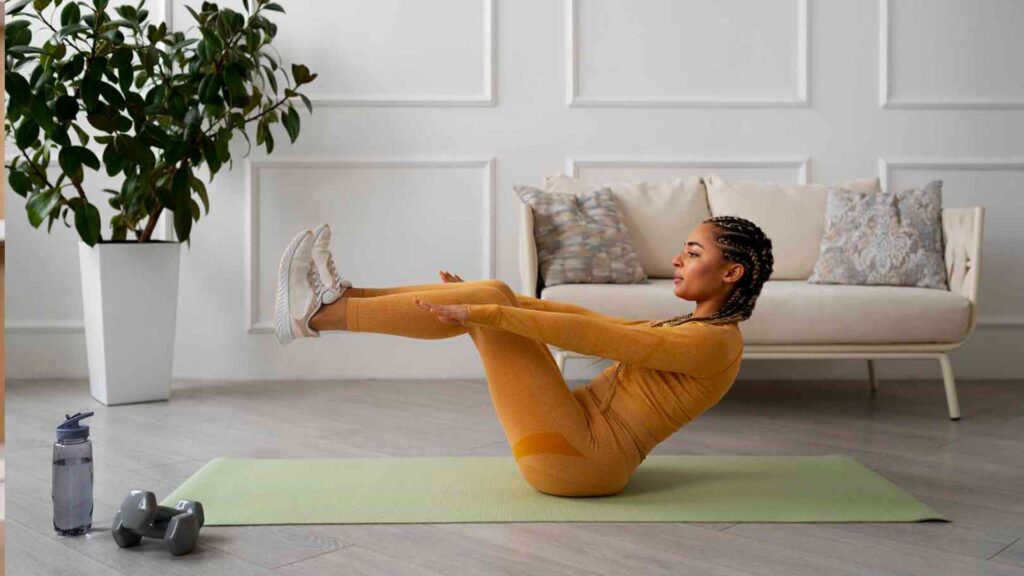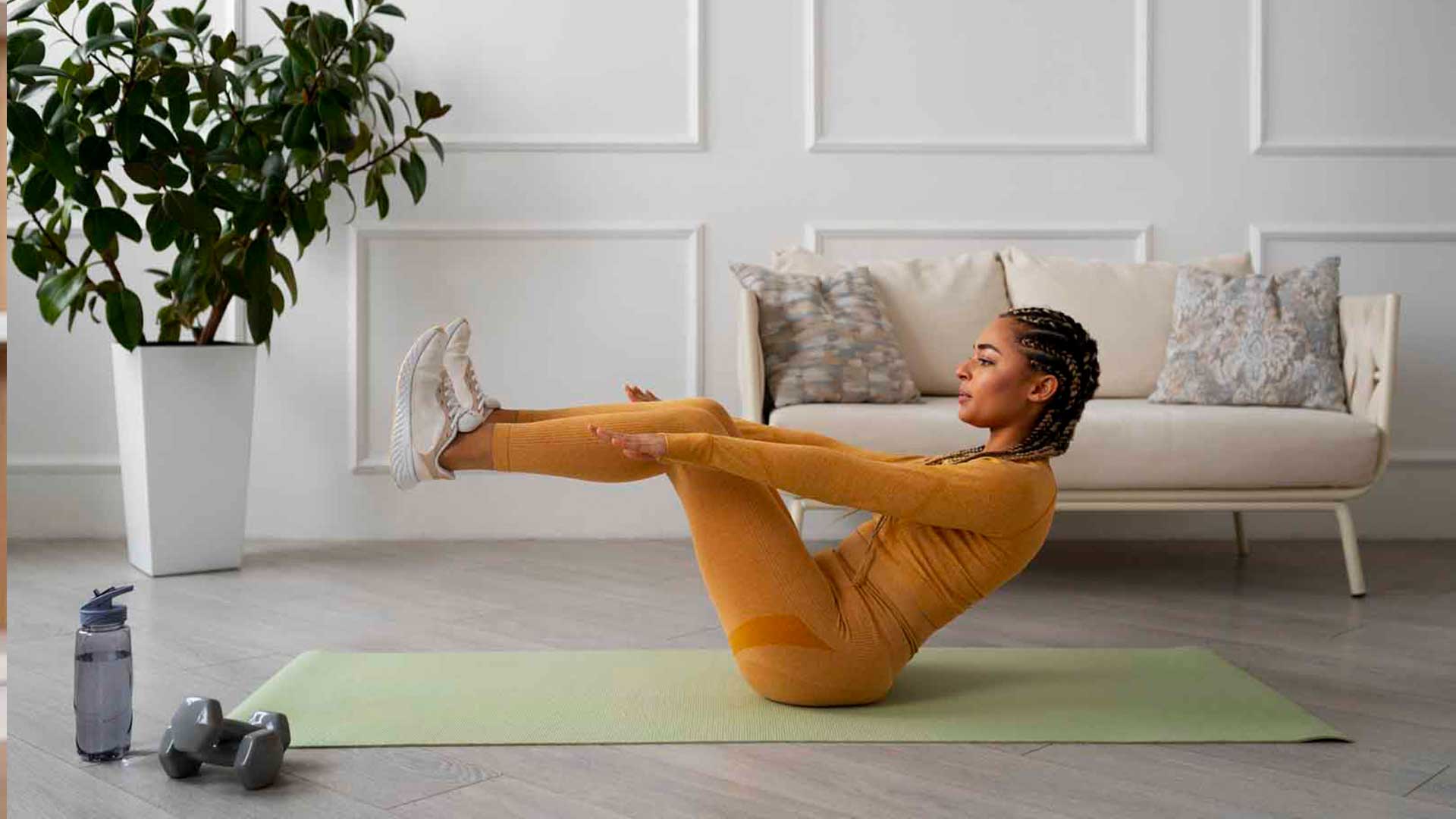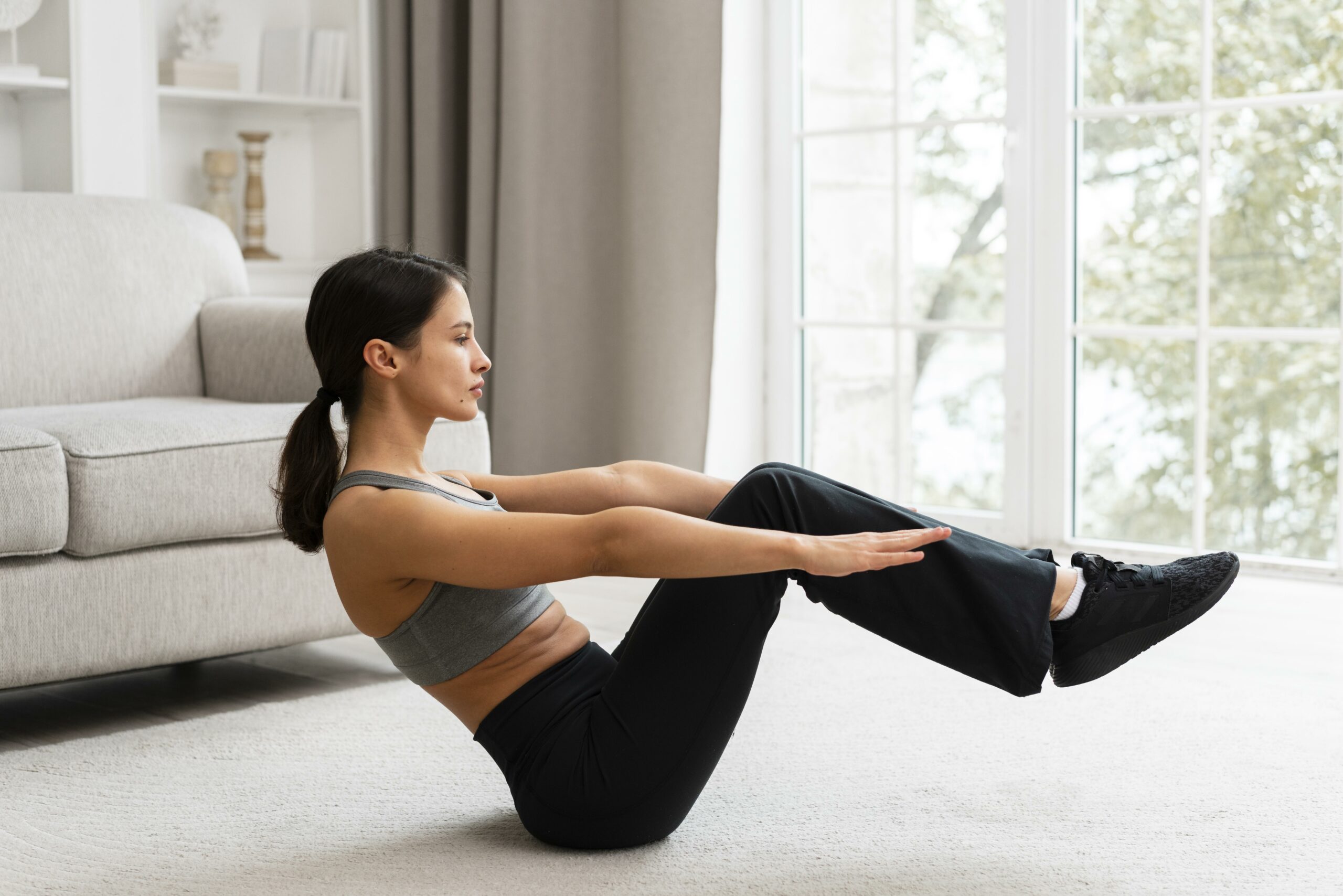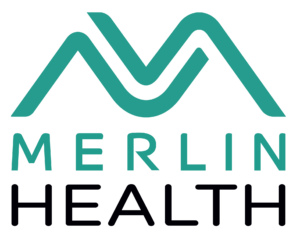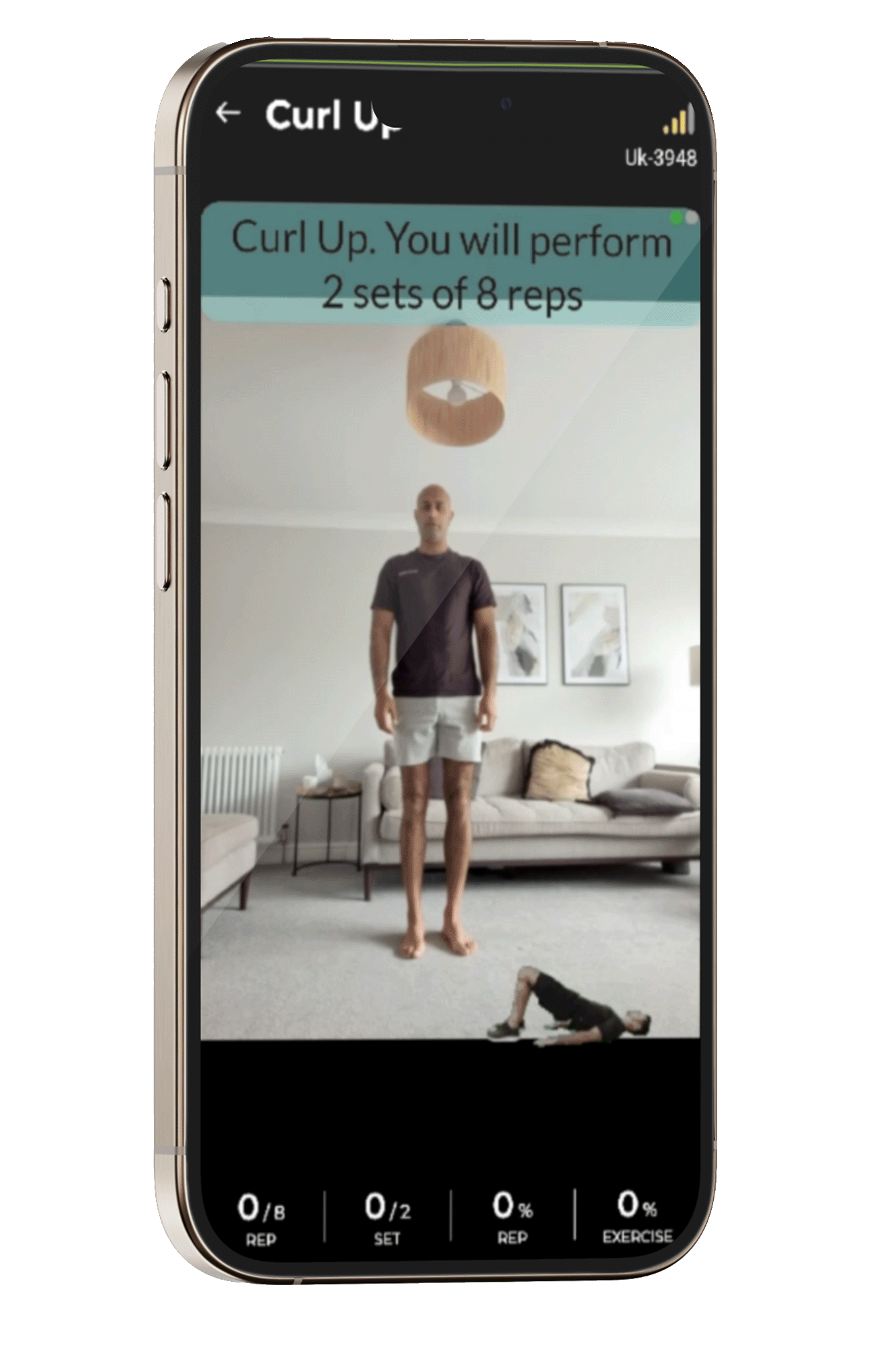Pilates for Core Strength: Unlocking the Key to a Stronger Body
If you\’re looking to improve your overall fitness level, one of the best places to start is with your core strength. A strong core is essential for everything from good posture to preventing back pain and injury. Fortunately, Pilates is an exercise that can help you achieve just that.
Pilates is a low-impact exercise that targets the muscles surrounding the trunk, including deep stabilizing muscles in the core, hips, lower back, and pelvic floor. It\’s a mind-body workout that can help you improve your balance, mobility, flexibility, and overall health.
In this article, we\’ll explore the benefits of this for core strength and provide tips for getting the most out of your Pilates practice.
Benefits of Pilates for Core Strength
Pilates is an exercise that provides numerous benefits for core strength. Here are some of the top benefits:
1. Targets Deep Stabilizing Muscles in the Core
Pilates exercises target the deep stabilizing muscles in the core, which are often overlooked in traditional strength training. These muscles are important for maintaining good posture, preventing back pain, and improving overall strength. According to Healthline, this targets muscles such as the transverse abdominis, multifidus, and pelvic floor.
2. Improves Balance and Mobility
Pilates exercises require you to engage your core muscles while performing various movements, which can improve your balance and mobility. This is especially important for older adults, who may be at risk of falls and injuries. According to Self, this can improve balance and prevent falls.
3. Enhances Flexibility
Pilates incorporates stretching movements that can help improve your flexibility. This can be beneficial for athletes, dancers, and anyone who wants to improve their range of motion. According to Tom\’s Guide, This can help improve flexibility and increase range of motion.
4. Low-Impact Exercise
Pilates is a low-impact exercise that is gentle on the joints. It\’s suitable for people of all ages and fitness levels, including those with injuries or chronic pain. According to Prevention, This is a low-impact exercise that can be done by anyone, regardless of age or fitness level.
5. Can Help Prevent Lower Back Pain
Pilates can help prevent lower back pain by strengthening the muscles that support the spine. This can be especially beneficial for people who sit for long periods of time or have jobs that require repetitive motions. According to Today, Pilates exercises such as pelvic tilt, ab crunch, toe taps, and Pilates bridge can help prevent lower back pain.
Pilates Exercises for Core Strength
Pilates is a great way to strengthen your core muscles and improve your overall fitness level. Here are some specific Pilates exercises that target the muscles surrounding the trunk:
1. The Hundred
The Hundred is a classic this exercise that targets the abdominals and helps to improve core strength. To perform this exercise, lie on your back with your knees bent and feet flat on the ground. Lift your head and shoulders off the ground and extend your arms straight out in front of you. Pump your arms up and down while breathing deeply for 100 counts. According to Tom\’s Guide, The Hundred is one of the most effective Pilates exercises for building core strength.
2. Bicycle Crunch
The Bicycle Crunch is another effective this exercise that targets the abdominals and helps to improve core strength. To perform this exercise, lie on your back with your hands behind your head and your knees bent. Lift your head and shoulders off the ground and bring your right elbow to your left knee while extending your right leg. Repeat on the other side, bringing your left elbow to your right knee while extending your left leg. According to Healthline, the Bicycle Crunch is a great exercise for targeting the rectus abdominis and oblique muscles.
3. Mountain Climbers
Mountain Climbers are a challenging Pilates exercise that targets the hip extensors and helps to improve core strength. To perform this exercise, start in a plank position with your hands directly under your shoulders and your feet hip-width apart. Bring your right knee in towards your chest and then switch, bringing your left knee in towards your chest. Continue alternating legs as if you are running in place. According to Tom\’s Guide, Mountain Climbers are a great exercise for improving endurance and flexibility.
4. Pilates Bridge
The Pilates Bridge is a great exercise for targeting the back extensors and hip extensors, and improving overall core strength. To perform this exercise, lie on your back with your knees bent and feet flat on the ground. Lift your hips up towards the ceiling, keeping your shoulders on the ground. Hold for a few seconds and then lower back down to the ground. According to Today, this Bridge is a great exercise for strengthening the lower back.
5. Shoulder Girdle Stabilizers
Shoulder girdle stabilizers are important for maintaining good posture and preventing injury. To target these muscles, try exercises such as the Scapula Isolation exercise, which involves squeezing your shoulder blades together and then relaxing them. According to Healthline, shoulder girdle stabilizers are important for maintaining good posture and preventing shoulder injuries.
By incorporating these Pilates exercises into your workout routine, you can improve your core strength and overall fitness level.
Tips for Maximizing the Benefits of Pilates
To maximize the benefits of Pilates for core strength, it\’s important to follow these tips:
1. Engage All Muscles
When performing Pilates exercises, it\’s important to engage all of your muscles, not just your core. This will help you to get the most out of each exercise and improve your overall fitness level.
2. Maintain Good Form
Maintaining good form is essential when performing Pilates exercises. This means keeping your spine in a neutral position, engaging your core muscles, and avoiding any movements that cause pain or discomfort. According to Healthline, good form is essential for preventing injuries and getting the most out of each exercise.
3. Breathe Properly
Proper breathing is essential when performing Pilates exercises. Inhale deeply through your nose and exhale through your mouth, focusing on filling your lungs with air. According to Self, proper breathing can help you to engage your core muscles more effectively and improve your overall performance.
4. Use Props
Props such as resistance bands and yoga blocks can be used to make Pilates exercises more challenging and effective. According to Prevention, using props can help you to target specific muscles and improve your overall fitness level.
5. Practice Regularly
Like any exercise, Pilates requires regular practice in order to see results. Aim to perform Pilates exercises at least two to three times per week, and gradually increase the intensity and duration of your workouts over time.
By following these tips, you can maximize the benefits of Pilates for core strength and overall fitness. Remember to start slow and gradually increase the intensity of your workouts over time, and always listen to your body and avoid any movements that cause pain or discomfort.
Pilates vs. Other Core Exercises
While there are many exercises that can help to improve core strength, Pilates offers some unique benefits. Here\’s how Pilates compares to other core exercises:
1. Pilates vs. Traditional Ab Exercises
Traditional ab exercises such as crunches and sit-ups can be effective for building abdominal strength, but they often neglect other important core muscles. Pilates, on the other hand, targets a wide range of core muscles, including the deep stabilizing muscles in the back and hips. According to Self, Pilates can help to improve overall core strength and prevent lower back pain.
2. Pilates vs. Yoga
Yoga and Pilates are both mind-body exercises that can help to improve core strength and flexibility. However, Pilates tends to focus more on core strength and stability, while yoga focuses more on flexibility and relaxation. According to Tom\’s Guide, Pilates can be a great complement to yoga and other forms of exercise.
3. Pilates vs. Strength Training
Strength training exercises such as weightlifting and resistance training can be effective for building overall strength, but they often neglect the core muscles. Pilates, on the other hand, targets the entire core, including the deep stabilizing muscles that are often neglected in traditional strength training. According to Prevention, Pilates can be a great complement to strength training workouts.
4. Pilates vs. Cardio
Cardiovascular exercises such as running, biking, and swimming are great for improving cardiovascular health and burning calories. However, they often neglect the core muscles. Pilates, on the other hand, targets a wide range of core muscles and can help to improve overall core strength and stability. According to Today, Pilates can be a great complement to cardiovascular workouts.
Overall, Pilates is a unique form of exercise that offers numerous benefits for core strength and overall fitness. While there are many other exercises that can help to improve core strength, Pilates is a great way to target all of the muscles in the core and improve overall stability and strength.
Pilates with Merlin App
It seems like you\’re interested in a Pilates app with specific features. While I\’m not aware of a \”Pilates with Merlin\” app, I can provide information on how AI real-time feedback and customized workouts could be beneficial in a Pilates app.
1. AI Real-Time Feedback:
- 1. Form Correction: An AI-powered Pilates app can analyze your movements during exercises and provide real-time feedback on your form. It can point out areas where your posture may be incorrect and suggest adjustments to help prevent injuries and maximize the effectiveness of your workout.
- 2. Performance Metrics: The app can track your progress and provide data on your performance, such as your range of motion, balance, and stability. This feedback can help you set goals and monitor your improvements over time.
2. Customized Workouts:
Personalization: A Pilates app with customization options can tailor workouts to your individual fitness level, goals, and any specific needs or limitations you may have. For example, it can create routines for beginners, intermediate, or advanced users.
- 1. Variety: Customization can extend to the types of exercises and equipment available. Users can select workouts based on their preferences, whether they prefer mat-based Pilates or exercises that incorporate equipment like reformers or resistance bands.
- 2. Goal-Oriented: Users can specify their fitness goals, such as core strength, flexibility, posture improvement, or stress relief. The app can then design workouts that align with these objectives.
- 3. Progress Tracking: The app can keep track of your workout history, including the exercises you\’ve completed and your performance over time. This allows for adjustments in your routines as you progress.
If you\’re specifically looking for an app called \”Pilates with Merlin\” that offers these features, I recommend checking your app store or conducting an online search to see if such an app exists. Additionally, you can explore popular fitness apps that provide AI feedback and customization options for Pilates workouts.
Start Your Pilates Journey Today
Pilates is a great way to improve your core strength, flexibility, and overall fitness level. By incorporating Pilates exercises into your workout routine, you can target a wide range of core muscles and improve your overall stability and strength. Here are some final thoughts to keep in mind as you begin your Pilates journey:
1. Start Slow
If you\’re new to Pilates, it\’s important to start slow and gradually build up the intensity and duration of your workouts. Focus on maintaining good form and engaging all of your muscles, and don\’t be afraid to modify the exercises to suit your fitness level.
2. Mix It Up
While Pilates can be a great standalone workout, it\’s also a great complement to other forms of exercise. Try mixing Pilates into your regular workout routine to target all of your core muscles and improve your overall fitness level.
3. Stay Consistent
Like any exercise, Pilates requires consistency in order to see results. Aim to perform Pilates exercises at least two to three times per week, and gradually increase the intensity and duration of your workouts over time.
4. Check Out Our Other Great Content
If you\’re interested in learning more about Pilates and other forms of exercise, be sure to check out our other great content. We offer a wide range of articles and resources to help you improve your fitness level and achieve your health goals.
Start your Pilates journey today and discover the many benefits of this unique form of exercise. With a little dedication and consistency, you can improve your core strength, flexibility, and overall fitness level.
Common Questions
Q.Who can benefit from Pilates for core strength?
A.Pilates is suitable for people of all fitness levels and ages who want to improve their core strength and stability.
Q.What are some Pilates exercises that target the core?
A.Pilates exercises that target the core include the Hundred, Roll Up, Single Leg Stretch, and Plank.
Q.How often should I do Pilates for core strength?
A.Aim to do Pilates exercises at least two to three times per week to see results and improve your overall fitness level.
Q.What if I have back pain? Can I still do Pilates?
A.Pilates can be a great way to alleviate chronic back pain and improve core strength, but it\’s important to talk to your doctor before starting any new exercise program.
Q.How does Pilates compare to traditional ab exercises?
A.While traditional ab exercises can be effective for building abdominal strength, Pilates targets a wider range of core muscles, including the deep stabilizing muscles in the back and hips.
Q.What if I\’m not flexible? Can I still do Pilates?
A.Yes, Pilates can help to improve flexibility as well as core strength. Start slow and gradually increase the intensity and duration of your workouts over time.
